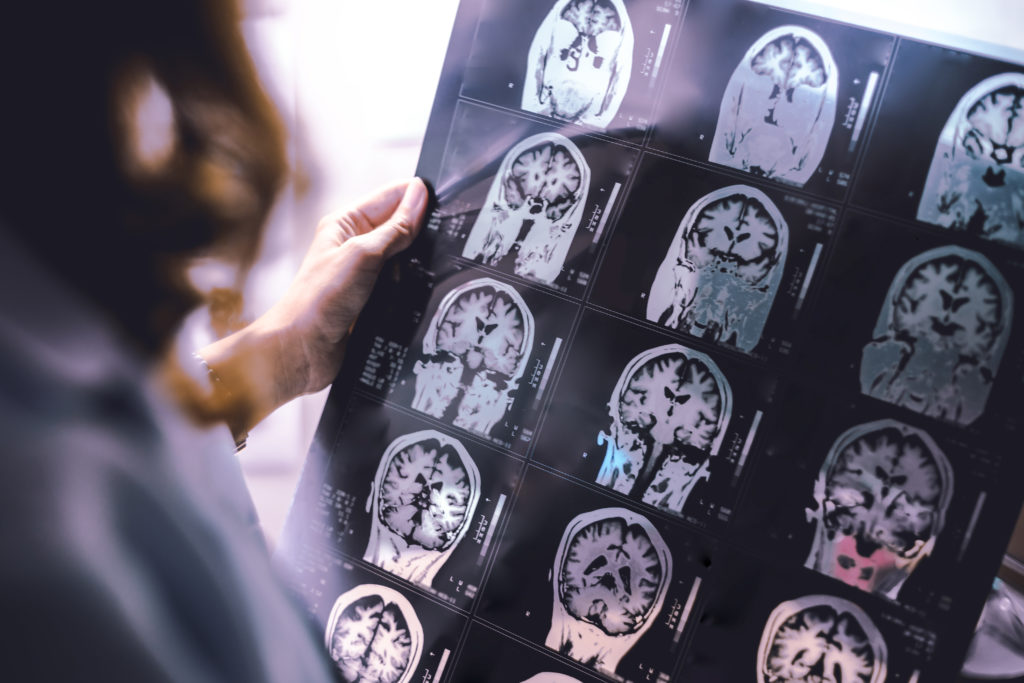Quick Hits
Daily brief research updates from the cognitive sciences

Brain scanning of political partisans is not new and it has long been reported that brain scans can predict political affiliation. But those studies were scans of political partisans in situation that elicited emotional responses such as looking at pictures of political candidates or asking questions on policy issues.
The question these researchers wanted to answer is can you predict a person’s political affiliation just by looking at their brains while they were doing random tasks or even nothing at all!
What did these researchers at Ohio State University do?
The researchers recruited 174 participants to take part in the study and questioned them on their political affiliation and the intensity of this. They then underwent various brain scans while doing various standard testing activities. These activities were unrelated to politics. These included reward response tasks, clicking quickly on screen to receive a reward, empathy tasks, short-term memory task, episodic memory, matching names to faces, and more.
Interestingly they also did resting state scans, scanning the brain while doing nothing.
By measuring functional connectivity i.e. how brain regions connect they were then able to match correlations to political ideologies.
What did they find?
And yes, they found that using this functional connectivity they could predict political affiliation as effectively as with the best other predictor. What is the best other predictor you may ask? It is the political affiliation of your parents.
What is more interesting is that this correlation was just as effective by looking at resting state brain activity – so by looking at your brain at rest they could predict political affiliation.
It is not a perfect correlation but nevertheless intriguing and fascinating at the same time.
An additional note is that the reward task was most predictive of political extremism, showing a surprisingly high corelation, which shows that politics seem to resolve around emotionality. Just what this could mean is another question for further research.
So, is there a conservative brain and liberal brain (in the USA that is)? It certainly seems so●

Andy Habermacher
Andy is author of leading brains Review, Neuroleadership, and multiple other books. He has been intensively involved in writing and research into neuroleadership and is considered one of Europe’s leading experts. He is also a well-known public speaker speaking on the brain and human behaviour.
Andy is also a masters athlete (middle distance running) and competes regularly at international competitions (and holds a few national records in his age category).
Reference
Seo-Eun Yang, James D Wilson, Zhong-Lin Lu, Skyler Cranmer.
Functional Connectivity Signatures of Political Ideology.
PNAS Nexus, 2022;
DOI: 10.1093/pnasnexus/pgac066
More Quick Hits
Don’t Try to Change Minds – Change Behaviour
Don’t try to change minds, but simply change behaviour is the result a group of researchers have come to with regard to vaccinations.
Why Heat Makes Us Sleepy
Imagine if you are working and your stress levels are increasing, and then automatically soothing music is turned on to calm you down. Or alternatively if you are heading towards that after lunch dip of drowsiness and upbeat energetic music is turned on to energise you.
Tracking Mental States Through Your Skin – In Real Time
Imagine if you are working and your stress levels are increasing, and then automatically soothing music is turned on to calm you down. Or alternatively if you are heading towards that after lunch dip of drowsiness and upbeat energetic music is turned on to energise you.
Testosterone Promotes Cuddling
Quick HitsDaily brief research updates from the cognitive sciences es, you read the headline correctly. Testosterone considered the ultimate male hormone and often associated with aggression has had a bad rap. So, is all of this wrong? Well, the...
Online Learning Triggers Different Stress Responses
Quick HitsDaily brief research updates from the cognitive sciences ot so long ago all learning went online – out of necessity. There has been plenty pf research into differences in online learning and in-person learning but this study by Gellisch...
Use It Or Lose It – Mental Activity Reduces Dementia
Quick HitsDaily brief research updates from the cognitive sciences regularly write on which activities reduce risks of cognitive decline (just last week I reported on how your job can protect your mental abilites with age and also doing household...






